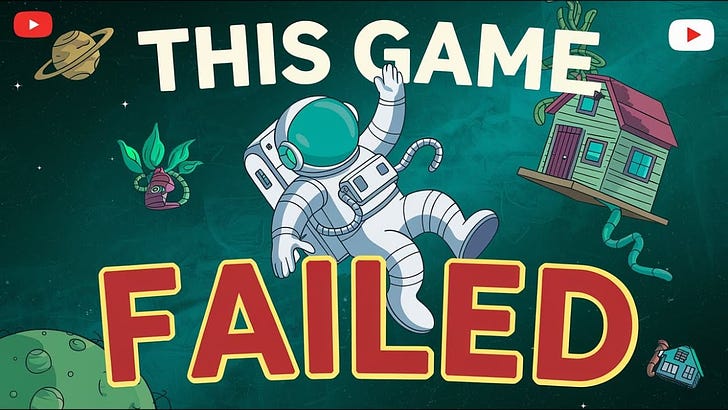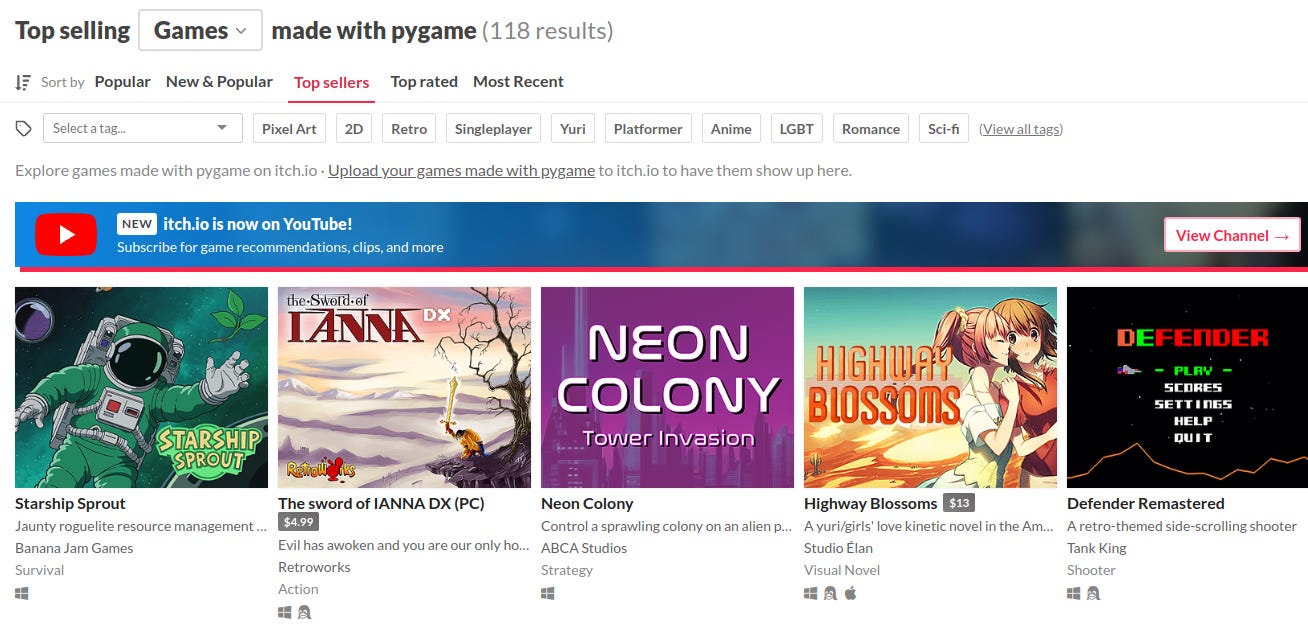Our Roguelite Launched Into the Stars but Quickly Came Crashing Down
Exploring the First Few Days of "Starship Sprouts" Launch
On 12 Tuesday November 2024, we launched our debut game “Starship Sprout” on Itch.io. Whilst prior to the launch there was some rumblings of interest, it failed to materialise. Yes, it’s early days—after all, the game has only been available for three days—but in my experience, it’s this initial period that indicates its future success.
On day one of launch, “Starship Sprout” received only two sales. This is, as you can imagine, disheartening; but optimism lingered in the form of its Microsoft Store release. Only, that too failed to materialise due to endless MSIX packaging issues.
I hopefully made a video about this issue.
It’s unlikely “Starship Sprout” will now come to the MS Store, unless there is significant demand—but if it were to gain popularity, the choice of store would be Steam.
When day two came around, my hope pretty much died. Social media algorithms were against me, failing to push any content, as were the god’s of Itch. But then I decided to make the game free which is quickly turning things around.
Almost immediately after making the game freely available, downloads spiked and on day three these downloads are continuing. In fact, “Starship Sprout” has appeared as a “top selling” in games made with pygame on Itch.
The growing interest in “Starship Sprout” is bitter-sweet. Obviously, I want people to play the game but I also wanted to raise money for FeedUK through Itch.io sales, which will now only happen if players are kind enough to voluntarily pay for the game.
It’s the thought that counts, I suppose…
This also means that “Starship Sprout” will not be profitable for me and Banana Jam Games—this doesn’t matter because no costs were involved in development besides my time. Still, had I made some money, I’d have more time to work on our next game as I’d be able to afford time out of my day job.
Still, with the “Starship Sprout” soundtrack soon coming to Spotify, it’s possible that I’ll generate some revenue. Though my experience within the music business says otherwise.
All this got me thinking. Clearing it’s difficult to actually sell games, so how can I make game development profitable? Sure, long-winded marketing campaigns are an option, but that would make me hateful and I’ve already promised to avoid paid advertising as much as possible.
What I don’t ever want to do is offer micro-transactions or serve in game ads. So here’s the plan:
Release complete (or base) games for free. These will offer a comprehensive player experience
Continue to publish my game soundtracks on music streaming services
Sell DLC at a low price
Let’s be clear on what I mean by DLC because I’m not talking about micro-transactions. I mean fully-fledged game expansions. A great example is the DLC that’s available for Vampire Survivors—they’re highly affordable and offer many more hours of content.
So, I’m not talking about selling new character skins for £1 a piece or pay-to-win type weapons; I’m talking about selling game expansions at an affordable rate, probably somewhere between £1.99 - £3.99 depending on the level of added content.
To be clear, players who are only interested in the free base game won’t be getting a limited experience—they will enjoy the full game minus the DLC.
This is the business model Banana Jam Games will be operating from now on, likely plus some merch sales if there’s a demand. This is the only way I can conceivably drive a profit without conforming to predatory micro-transactions and ads.
I’m quite happy with the model and I think it offers a fair deal for players—highlighting our commitment to player-first experiences—and Banana Jam Games.




